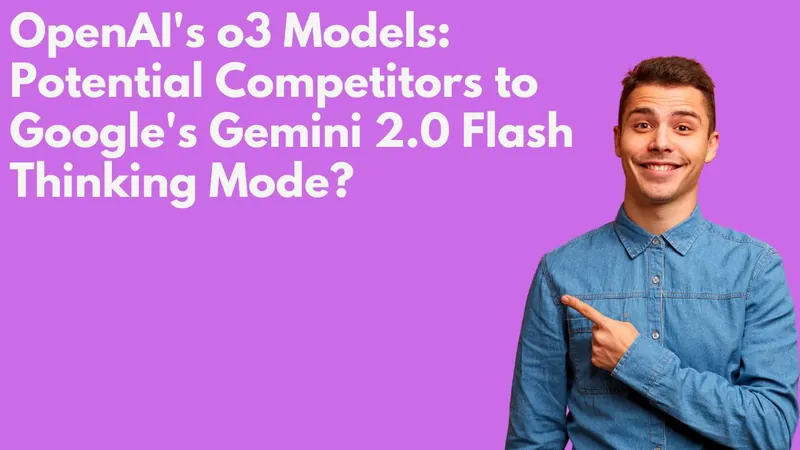
Anthropic Unveils Game-Changing Model Context Protocol for LLM Integration – Here’s What You Need to Know!
2024-12-24
Author: Jia
In a significant move for the AI industry, Anthropic has launched their Model Context Protocol (MCP), a groundbreaking open standard designed for the seamless integration of various external resources and tools with large language model (LLM) applications. This release not only encompasses software development kits (SDKs) tailored for the protocol but also features an open-source repository containing reference implementations of MCP to aid developers.
The MCP aims to tackle the notorious "MxN" crisis—an intricate challenge faced by developers when dealing with multiple LLMs (M) alongside numerous tools (N). By providing a standardized framework, the MCP simplifies the integration process for LLM vendors and tool creators alike. At its core, MCP operates on a client-server model; AI applications such as Claude for Desktop or integrated development environments (IDEs) utilize an MCP client to connect with MCP servers that manage data sources or interactive tools.
For immediate implementation, developers can dive into MCP with SDKs available in both Python and TypeScript, along with a growing compendium of community-contributed servers and reference implementations. Anthropic is eager to cultivate feedback from users in various sectors, from tool developers to enterprises seeking to harness existing data, signaling a collaborative approach towards establishing a vibrant context-aware AI ecosystem.
The MCP specification is built around a set of JSON-RPC messages facilitating communication between Clients and Servers, incorporating foundational components referred to as primitives. These include three server primitives—Prompts, Resources, and Tools—alongside client primitives known as Roots and Sampling.
What Do These Primitives Mean?
Prompts serve as the instruction templates that guide LLMs on how to process information.
Resources encapsulate structured data that can augment the context provided to the language models.
Tools represent executable functions allowing LLMs to interact with external data or perform specific tasks.
On the client side, Roots provide a gateway to file systems, enabling servers to access files on the client-side. The Sampling primitive equips servers to solicit “completions” or “generations” from a client-hosted LLM, a capability that can be used to create more sophisticated AI interactions. However, Anthropic emphasizes the importance of human oversight, advising that there "SHOULD always be a human in the loop" to ensure responsible use of this feature.
To help developers harness the MCP effectively, the project documentation includes a host of examples and tutorials. One notable Quickstart guide illustrates how to use a Claude LLM to retrieve real-time weather updates. In this scenario, a developer constructs a Python-based MCP server that integrates with public web services to fetch weather data. Subsequently, developers can utilize the built-in MCP client in the Claude for Desktop app to interact with the MCP server and receive timely weather forecasts.
During a discussion on Hacker News regarding the MCP, Anthropic's Justin Spahr-Summers expressed optimism about the protocol’s potential, asserting that it could indeed address the MxN dilemma. He elaborated on how MCP distinguishes itself from other tool-usage methods in LLMs, highlighting the necessity of separate constructs like “prompts” and “resources” to articulate distinct operational intentions.
This development marks a significant step towards creating a more interconnected AI landscape, empowering developers to build innovative applications with improved efficacy. With the MCP, Anthropic is not just offering tools but is inviting a community of creators to redefine the workings of context-aware AI. Will your next breakthrough be powered by MCP? The future of AI integration is here!



 Brasil (PT)
Brasil (PT)
 Canada (EN)
Canada (EN)
 Chile (ES)
Chile (ES)
 España (ES)
España (ES)
 France (FR)
France (FR)
 Hong Kong (EN)
Hong Kong (EN)
 Italia (IT)
Italia (IT)
 日本 (JA)
日本 (JA)
 Magyarország (HU)
Magyarország (HU)
 Norge (NO)
Norge (NO)
 Polska (PL)
Polska (PL)
 Schweiz (DE)
Schweiz (DE)
 Singapore (EN)
Singapore (EN)
 Sverige (SV)
Sverige (SV)
 Suomi (FI)
Suomi (FI)
 Türkiye (TR)
Türkiye (TR)